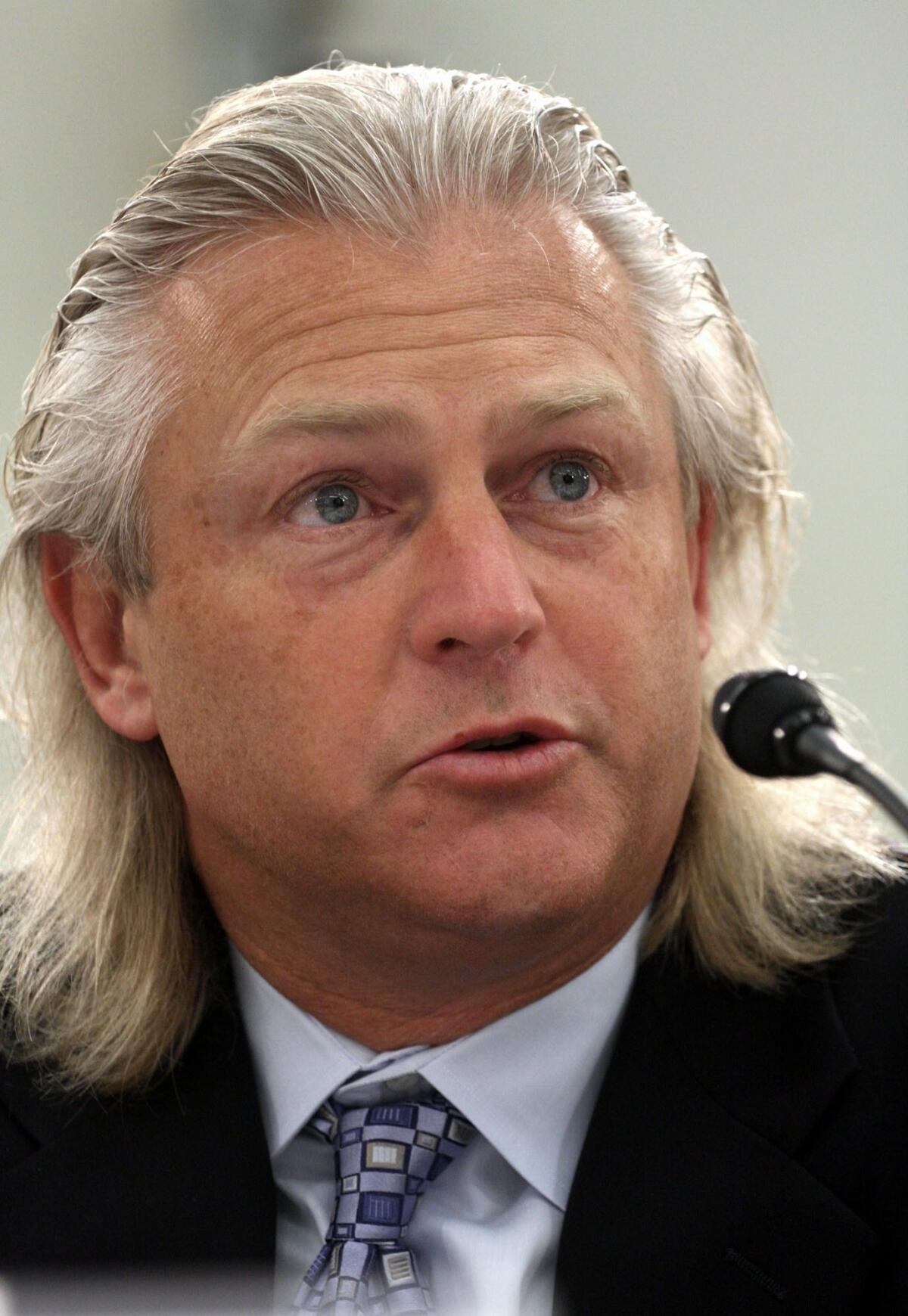Ex-Bumble Bee CEO gets prison term, a rarity in antitrust

Former Bumble Bee Foods Chief Executive Chris Lischewski was sentenced to more than three years in prison for his role in a price-fixing racket, a rare outcome in a U.S. antitrust crackdown.
In December, Lischewski was found guilty by a San Francisco federal jury of conspiring with colleagues and other industry executives to manipulate canned tuna prices, capping a marathon U.S. investigation that shook the packaged seafood industry and ultimately forced Bumble Bee into bankruptcy.
U.S. District Judge Edward Chen imposed a $100,000 fine on Lischewski on Tuesday on top of a 40-month term of incarceration. Lischewski’s offense “was widespread, pervasive and affected an entire industry and, as this court has found, affecting a volume of commerce to the tune of $1 billion,” Chen said at the sentencing hearing, which was streamed via Zoom. (Times owner Dr. Patrick Soon-Shiong is an investor in Zoom.)
The meat industry is facing the most aggressive attack by antitrust authorities in a century. Prosecutors have charged executives at two poultry producers, including the chief of Pilgrim’s Pride Corp., and hinted at additional charges in the chicken industry. The Justice Department is setting its sights on beef companies in a separate investigation, issuing subpoenas to the four biggest producers — Tyson Foods Inc., JBS, Cargill Inc. and National Beef Inc.
Lischewski joins a handful company leaders who’ve been locked up for price fixing over the last two decades. Federal prosecutors recommended the ex-CEO serve eight to 10 years in prison and pay a $1-million fine. His attorneys suggested he serve 12 months of home confinement.
Bumble Bee pleaded guilty to conspiring with Starkist Co. and Chicken of the Sea Inc. to fix prices of canned tuna products from 2011 through 2013. The company, whose guilty plea carried a criminal fine of $25 million, filed for bankruptcy in November.
The seriousness of Lischewski’s crime can’t be understated because the product in question is a basic, low-price food staple and not a high-end consumer good like computers, Chen said. “This is food, food for people who, I think it’s fair to assume, include those at the lower end of the socioeconomic scale based on the pricing of the product. So the impact has particular meaning.”
The judge allowed lawyers representing tuna purchasers in a parallel antitrust class-action lawsuit to speak at the sentencing.
Betsy Manifold, who represents a group of consumers, including a Florida paramedic, a Maine police officer and three stay-at-home mothers, said her clients “suffered actual monetary harm by overpaying for a simple staple purchased by thousands,” including low-income households and the elderly.
Safeway overpaid Bumble Bee “millions of dollars” as result of the conspiracy, William Blechman, an attorney for Albertson’s Inc., which owns the grocery chain, said at the hearing.
Chen lauded Lischewski, 59, for his philanthropic efforts and lack of a criminal record before he was charged and pointed to potential health risks he may face as COVID-19 is spreading in U.S. prisons.
Manish Kumar, an attorney for the Justice Department’s antitrust division, argued that age and “good acts” that high-level executives routinely engage in to maintain social and professional relationships can’t be the basis for a lenient sentence.
“Like all of us, the defendant was neither all good nor all bad,” Kumar said. But he engaged in criminal conduct “when no one was looking,” Kumar said.
Lischewski told the judge the evidence presented by his defense team showed “no financial harm or finding of any financial impact of price-fixing on U.S. consumers.”
“I took the responsibility of providing affordable food to American consumers very seriously,” he said.
The former executive is set to pay his fine within 120 days and surrender Aug. 17 at a minimum-security camp in Lompoc, Calif., or Tucson.
Lischewski plans to appeal, his lawyer, Elliot Peters, told the judge after the sentence was pronounced.
More to Read
Inside the business of entertainment
The Wide Shot brings you news, analysis and insights on everything from streaming wars to production — and what it all means for the future.
You may occasionally receive promotional content from the Los Angeles Times.









